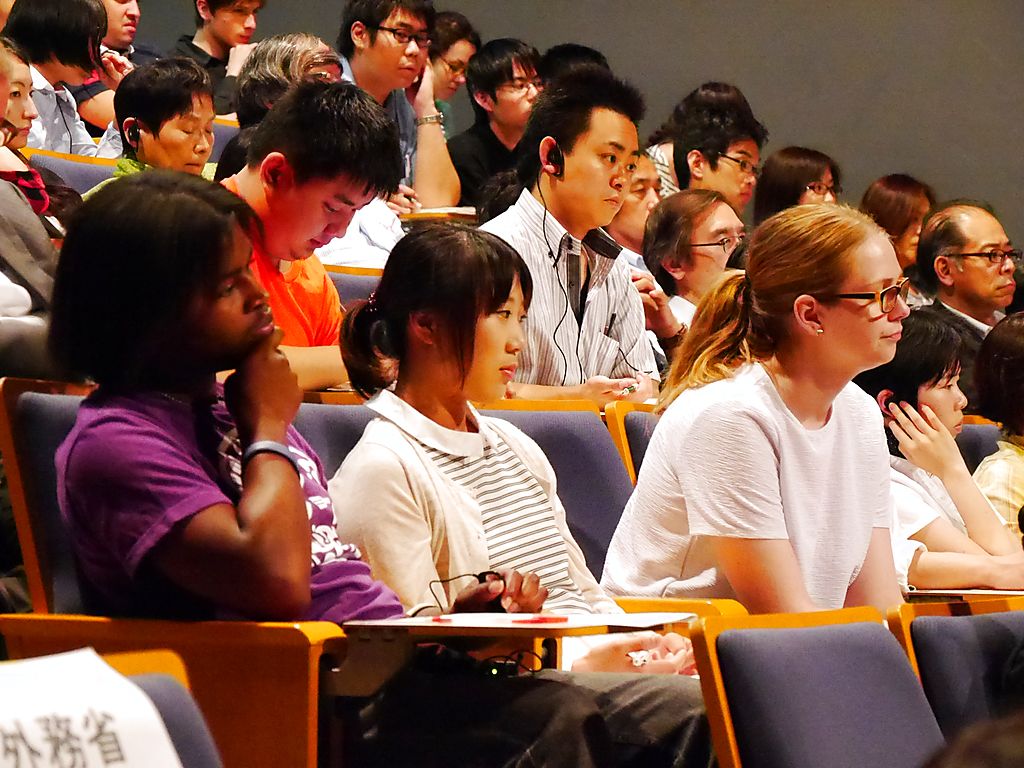International Symposium: Reconciliation in Europe after WWII
Fri, Jul 3, 2015-
Tags
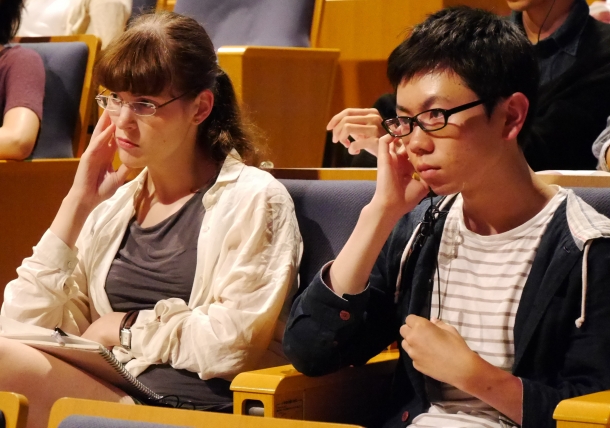
On June 18, more than a dozen scholars, journalists and diplomats from nine countries gathered at Waseda University to examine the process of reconciliation among European countries after World War II. Before an audience of 200, discussions covered the experiences of multiple countries in Europe, as well as references and comparisons to East Asia. With the support of five European embassies, the symposium provided valuable insight into the political as well as social aspects of reconciliation between states and peoples.
- Title: Reconciliation and Cooperation in Europe after World War II – Difficulties, Complexity and Diversity
- Date/Time: 18 June 2015, 13:00-18:00
- Venue: Waseda University Ono Auditorium
- Organizers: Embassies of France, Germany, Netherlands, Poland and United Kingdom, Waseda University (International Office, EUIJ Waseda, Organization for Regional and Inter-regional Studies (ORIS))
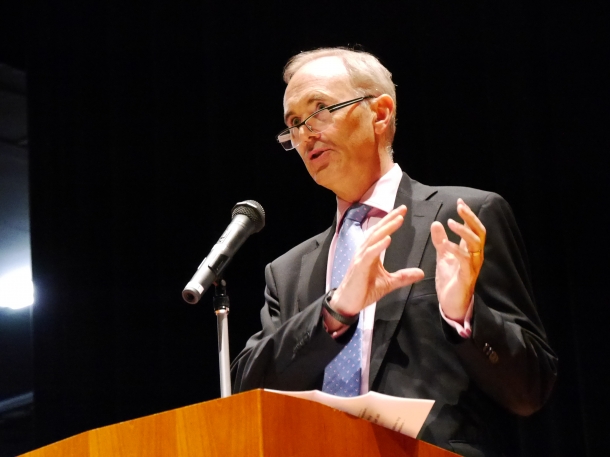
Opening Remarks
- Prof. Norimasa MORITA (Japan) Vice President for International Affairs, Waseda University
- H.E. Tim HITCHENS (UK) Ambassador to Japan
- MC: Prof. Hidetoshi NAKAMURA (Japan) Associate Professor, Deputy Director of EUIJ Waseda
Norimasa Morita opened the symposium, explaining how it came about. The Polish ambassador had proposed it at the opening of the Mieczysław Kościelniak exhibition at Waseda University in March, and Morita thought the symposium would be very valuable to Waseda, which has almost 5000 students from abroad. Tim Hitchens made opening remarks on behalf of the five co-organizing embassies. He emphasized that reconciliation is a process, where we must acknowledge history while continuing efforts at dialogue, which, he added, gives great meaning to this symposium.
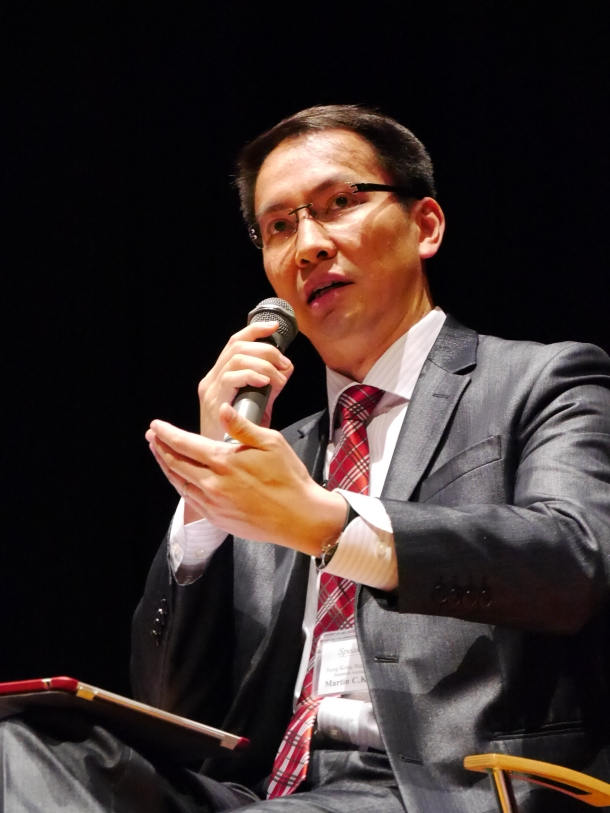
Session 1: The experience of inter-state reconciliation in Europe: Franco-German-Polish relations and their broader implications
- Prof. Shuichi KAWASHIMA (Japan) Associate Professor, Meiji University
- Prof. Piotr MADAJCZYK (Poland) Professor, Polish Science Academy
- Mr. Marnix KROP (Netherlands) Senior Visiting Research Fellow, Netherlands Institute of International Relations (Clingendael)
- Dr. Martin CHUNG (Germany) Research Assistant Professor, Hong Kong Baptist University
- Moderator: Prof. Min SHU, Associate Professor, School of International Liberal Studies, Waseda University
Shuichi Kawashima spoke about European reconciliation in the post-WWII era and the post-postwar era. Specifically about Franco-German reconciliation, he said three factors were most important: political effort, institutional factors such as the Cold War, and pre-war social-cultural relations.
Piotr Madajczyk spoke on the inter-state framework for German-Polish reconciliation. He explained two factors which had complicated the process, recognition of the postwar border and treatment of the German minority in Poland. Although the two countries did not have diplomatic relations after WWII, they did have inter-social relations, he said, which helped the reconciliation process.
Marnix Krop talked about how Europe dealt with Germany’s Nazi war legacy. He explained how Germany became a leading country in Europe again while avoiding aggressive nationalism, emphasizing the importance of the European Union integration process.
Martin Chung discussed transitional justice in postwar Germany, using the ideas of Fritz Bauer, who was a Jewish German judge. Bauer declared the importance of “Loveful Judging” for overcoming the past (“Vergangenheitsbewältigung”), for both society and individuals. Chung also referred to a Chinese book on collective repentance.
Discussion continued with questions from the floor about forgiveness and the role of religion in East Asia.
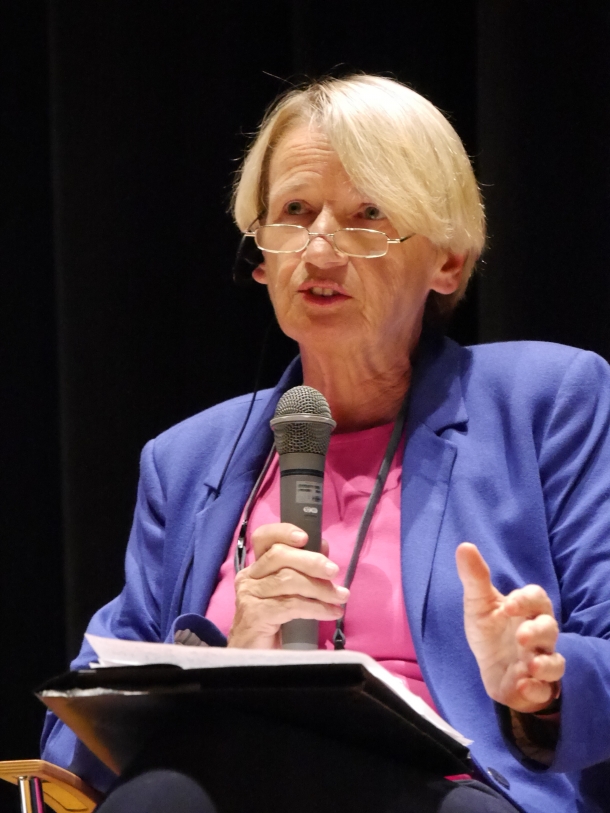
Session 2: Memory and reconciliation in Europe: European integration and post-colonial relations
- Prof. Hugh MIALL (UK) Emeritus Professor, University of Kent
- Prof. Mari FITZDUFF (Ireland/UK) Director, Master of Arts Program in Coexistence and Conflict, Brandeis University
- Prof. Jean-Marie BOUISSOU (France) Senior Research Fellow, Sciences Po
- Moderator: Prof. Hidetoshi NAKAMURA
Hugh Miall began Session 2 with a discussion of how the UK and Europe approached reconciliation with their former colonies. The UK was one of the first to pull back from its colonies, building good relations through the British Commonwealth. However, lacking any formal apology from the British government, the reconciliation process is expected to continue.
Mari Fitzduff followed with a presentation on the European experience of reconciliation between societies. Focusing on Northern Ireland and how the English and Irish have tried to coexist, she posited that management of diversity is the key to reconciliation, and the society must embrace all, whether aggressors or victims.
Jean-Marie Bouissou discussed why reconciliation was possible in Europe but not yet in Asia, comparing cultural and historical factors in the two regions. In the religious cultures, ideas of sin and redemption in Christianity differ from the Confucian focus on shame. Historical factors cited include regret in Europe over repeated wars and excessive sanctions towards the defeated, whereas in Asia war responsibility was attributed to imperialism and to America’s separation of Japan from Asia as a bulwark against Communism.
Questions from the floor led to further discussion of the British Commonwealth, citizen-led and economic relations in East Asia, and dealing with the Islamic State.
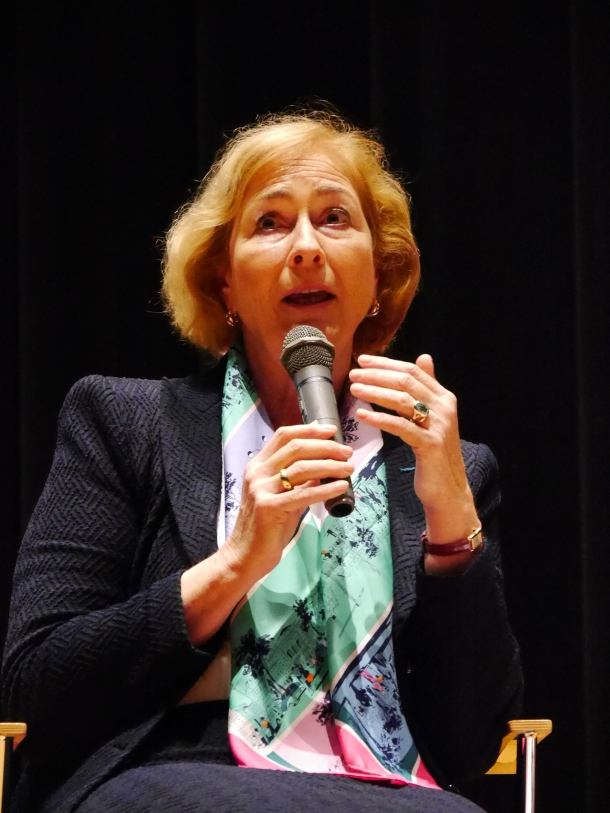
Session 3: The experience of inter-societal reconciliation in Europe
- Prof. Patricia OSTER-STIERLE (Germany) President, Franco-German University
- Mr. Adam KRZEMINSKI (Poland) Journalist, “Polityka” weekly magazine
- Prof. Hiromi KOMORI (Japan) Director, Institute of Studies for Japan-Europe Historical Relations, Waseda University
- Moderator: Prof. Christopher HOBSON (Assistant Professor, School of Political Science and Economics, Waseda University)
Patricia Oster-Stierle led off the third session with a presentation about her university and its part in Franco-German reconciliation. Bilingual curriculum, mixed dormitories and other special programs promote mutual understanding, beyond normal “foreign exchange”.
Adam Krzeminski spoke on the social aspect of Polish-German reconciliation, especially the role of religious leaders and grassroots exchange in bringing the two countries closer together, despite political challenges such as border disputes.
Hiromi Komori presented the example of reconciliation in Estonia between the native majority and ethnic Russians in the post-communism era, where historians were relatively successful in reconciling their viewpoints, but changing the people’s established notions has proven more difficult.
The panel responded to the audience regarding the Poland-Germany reconciliation process, historians’ role in reconciliation, and educational programs for encouraging dialogue.
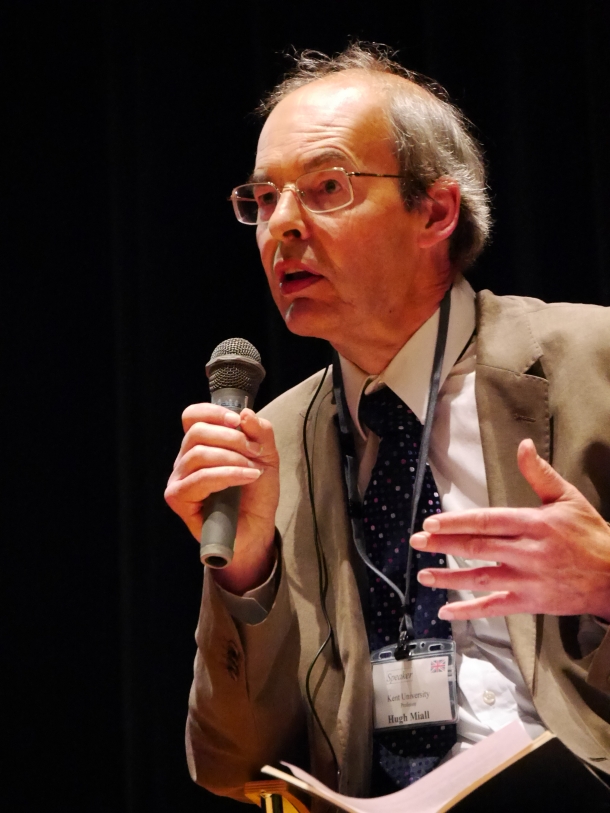
Closing Remarks
- Prof. Hugh MIALL (UK) Emeritus Professor, University of Kent
Hugh Miall closed the symposium by summarizing each session and emphasizing the importance for reconciliation of continuing discussion, not only between nation-states, but also involving a diversity of actors, including ordinary citizens.
Audience reactions:


